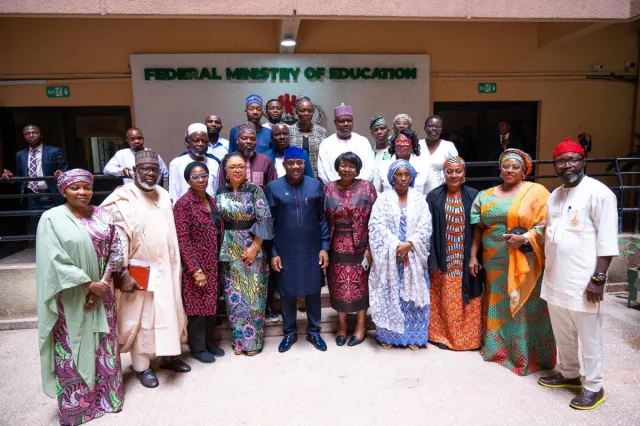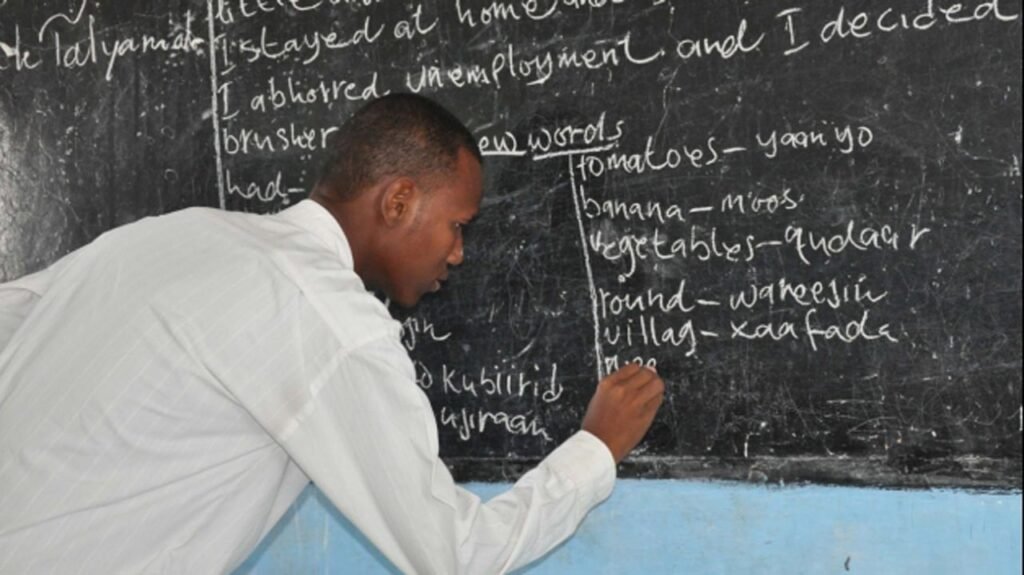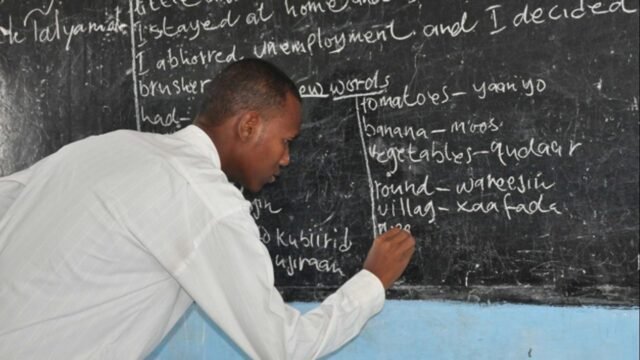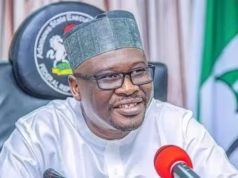In a resolute move to raise the bar in teaching standards, the Federal Government of Nigeria has issued a striking directive: by 2027, only teachers certified by the Teachers Registration Council of Nigeria (TRCN) will be permitted to lead classrooms in both public and private secondary schools. Schools failing to comply stand to lose accreditation to serve as exam centres for national assessments.
This directive, announced by the Minister of Education, Dr. Tunji Alausa, underscores a renewed commitment to revitalising the teaching profession, ensuring teachers are not just degree-holders, but qualified educators with official recognition and licensure. Below, we explore the new policy’s contours, the timeline for compliance, reactions from stakeholders, and the likely impact on Nigeria’s education system.
Table of Contents

Policy Details & Implementation Timeline
The memo carrying this policy was issued on Thursday by Dr. Alausa and addressed to the Registrar/Chief Executive of TRCN, with copies sent to relevant education stakeholders across all states. It states clearly: as of 2027, any teacher in secondary schools involved in national exams must hold full certification from the TRCN. Those who are uncertified will render their schools ineligible to be exam centres.
Here are the key dates and deadlines:
- March 2027: Mandatory TRCN-certified staff for WASSCE examination centres.
- May 2027: Deadline for NABTEB to enforce the policy.
- June 2027: Same rule applied for NECO and SAISSCE centres.
A compliance ramp-up phase is also part of the plan:
- Monitoring of levels begins in 2026; during this period, schools must achieve at least 75% compliance in teacher certification.
- Full compliance (100%) is expected by 2027.
To bridge the gap for presently uncertified teachers, the government allows those with non-education degrees but at least 12 months’ classroom experience to undertake short professional courses via the National Teachers Institute (NTI). These courses, lasting between three and six months, aim to prepare them for TRCN registration.
Reactions: Support, Concerns, & Stakeholder Voices
As with many sweeping reforms, the new order has drawn a spectrum of responses from teachers, administrators, private schools, and education analysts.
Positive Feedback
- Mr. Abiodun Adebayo, a mathematics teacher at Christ Ambassador College in Osogbo, described the policy as “long overdue.” He sees TRCN certification as a tool to weed out quackery and elevate teaching quality.
- Education analysts in Osun state argue that the move aligns with global best practices where teacher licensure is non-negotiable. They point to the statistical links between qualified teachers and improved performance in national exams.
Worries & Practical Challenges
- Mrs. Folashade Ojo, an English teacher in Ilesa, voiced concerns about the costs: many private school teachers already earn low wages; adding certification expenses could burden them.
- Mr. Tomiwa, a biology teacher in Osogbo, emphasised the need for flexibility, especially in funding such training for non-education graduates. He warned that without support, schools may cut corners, defeating the policy’s purpose.
- School administrators, such as Mrs. Rukayat Bello in Ife, fear that some private institutions may lose their exam centre accreditation if they are unable to sponsor their staff. She called for more stakeholder dialogue and potentially subsidy arrangements.

Implications and Potential Impact on Nigeria’s Education System
This policy is more than bureaucratic reshuffling—it has deep implications for quality, equity, and the future of national education outcomes.
Raising Professional Standards
By tying exam centre accreditation to teacher certification, the government is sending a clear message: professionalism matters. This is expected to reduce the incidence of underqualified individuals teaching subjects merely because they hold any degree. Over time, student outcomes are expected to improve in WASSCE, NECO, NABTEB, and SAISSCE exams as classrooms are led by duly trained teachers.
Possible Strain on Private Schools
Many private schools already operate on tight budgets. Imposing additional certification requirements may strain financial resources. There may be risks such as:
- Reduction in staff if certificated teachers cannot be retained.
- Increased tuition or fees as schools attempt to raise funds to meet compliance.
- Potential shutdown of smaller private schools failing to comply, affecting access to education in underserved areas.
State Governments’ Role
The memo urges state governments to begin immediate sensitisation campaigns. They are expected to ensure teachers are registered with TRCN during the transitional period from now until full compliance in 2027. State policymakers will need to plan budget lines, possibly subsidies, oversight mechanisms, and partnerships with institutions like NTI to roll out training.
Enforcement and Monitoring
Monitoring starts in 2026, with compliance benchmarks along the way. Exam bodies like WASSCE, NABTEB, NECO, and SAISSCE will likely coordinate with TRCN to ensure that only certified teachers are used in exam centres. The government will need to ensure that the certification process is accessible, efficient, and transparent to prevent delays or abuse.
What Must Schools and Teachers Do Now
To avoid losing accreditation and ensure smooth compliance, everyone in the education chain—teachers, school owners, and government—to-do’s include:
- Check Teacher Status: Schools should audit their current teaching staff to determine who is TRCN certified, who is in the process, and who is not certified.
- Use Existing Training Routes: Teachers with non-education degrees but with classroom experience should enrol in NTI short-term certificate or professional development courses now.
- Budget and Finance: Private school owners need to allocate funds for certification costs; seek partnerships, grants, or government subsidies if available.
- Engage with TRCN & NTI: Establish contacts, understand requirements, and timelines. TRCN registration processes should be started early to avoid bottlenecks.
- Advocate and Collaborate: Teachers’ unions or associations should seek clarity, support, and possibly negotiate subsidy measures; school owners should engage state governments for assistance.
- Sensitisation and Awareness: All stakeholders—teachers, parents, students—should be informed about the upcoming changes. Community awareness helps reduce panic and misinformation.

Conclusion
The Federal Government’s directive that from 2027 only TRCN-certified teachers may teach in schools that wish to maintain exam-centre accreditation is a bold and transformative policy. It confronts long-standing issues of underqualification, weak standards, and inconsistent performance in national examinations. While laudable, its success will depend heavily on careful implementation, adequate funding, and genuine collaboration between federal, state, school, and teacher stakeholders.
For many, this policy represents an overdue turning point—one where teaching becomes more respected through stricter professionalism, better training, and accountability. Yet for some schools and teachers, particularly in parts of the country with fewer resources, the directive may be daunting. Balancing enforcement with support will be key.
If handled well, Nigeria could see a sharp source of improvement in not just examination statistics, but in how the profession is valued, how students learn, and how the nation prepares for the challenges of the future. And if not, there may well be unintended consequences—school closures, increased educational inequity, and distrust. But with proactive planning and inclusive dialogue, the goal of a more robust, professional teaching workforce is both necessary and achievable.
Join Our Social Media Channels:
WhatsApp: NaijaEyes
Facebook: NaijaEyes
Twitter: NaijaEyes
Instagram: NaijaEyes
TikTok: NaijaEyes
READ THE LATEST EDUCATION NEWS





